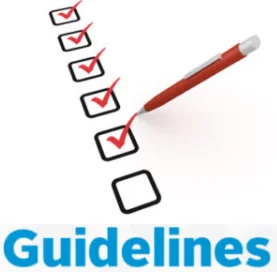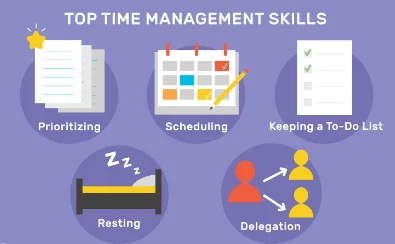Impact of Last-Minute Homework on Grades and Performance

We’ve all been there, trying to beat the clock to finish our assignments in time for the due date.
However, what effects do putting things off like this have on our grades and how well we perform overall?
In this fast-moving world, it is time to get to the bottom of things and uncover the truth. Join me as I explore the mayhem that last-minute homework creates and discover the long-term effects it has had on our academic careers.
Impact of Last-Minute Homework on Grades and Performance

Homework that you submit at the last minute has a big impact on marks and overall performance.
Students who put off their work till the last minute will inevitably produce less quality work.
Due to lack of time, there is limited opportunity to demonstrate expertise and inadequate comprehension.
Concentration and focus are hindered, which in turn prevents effective learning from occurring.
More importantly, this is because of the strain and stress of last-minute deadlines.
As a result, students’ marks suffer because their work needs to be better. A disruption in time management abilities and the creation of a cycle of delay due to procrastination can affect future assignments.
Students can only achieve academic success when they break free of this habit, which gives them a higher priority on quality, comprehension, and consistent performance. When pressed to the wall, seek a qualified person to assist you in writing last-minute essays.
Also Read: How to Get Good Grades on Your Essay: 15 Ways to Get Over Bad Scores
Ensuring Academic Integrity and Authenticity
It is absolutely necessary to adhere to particular steps that protect ethical standards if one wishes to maintain their academic honesty and integrity in their work.
You will acquire useful insights on how to avoid plagiarism, retain originality, and incorporate your own distinctive writing style if you navigate through the following recommendations:
1. Understanding the Ethical Implications
Regarding upholding the ethical standards of education, ensuring students’ and teachers’ academic integrity and authenticity is of the utmost importance.
When students participate in unethical behaviors like cheating or plagiarism, the consequences of their actions can have a significant impact on their academic careers.
Even so, it lowers the value of education and erodes trust within the academic community. Authenticity in one’s work demonstrates one’s commitment to intellectual honesty, critical thinking, and personal development.
Upholding academic integrity helps create an environment that is just and level, in which individuals are judged according to the merits they bring to the table.
2. Guidelines for Using the Service Responsibly

First, you should not try to pass off another person’s work as your own by using your input; rather, you should use it as a tool for learning and comprehension.
Second, it is essential to provide appropriate citations and references for any information or ideas received from using the service.
Thirdly, use the content generated as a reference or a guide to develop your ideas and arguments.
3. Avoiding Plagiarism and Maintaining Originality
Acknowledging sources correctly, using quotation marks where required, and citing references precisely are extremely important.
In addition, it is crucial to the process of producing original concepts and ideas through the use of critical thinking and research.
Students can exhibit their honesty and contribute to upholding ethical standards within the academic community by creating original works of art and respecting the intellectual property of others.
4. Incorporating the Essay into your Writing Style
Instead of merely duplicating or replicating the content, try to understand the ideas provided and organically integrate them into your style and writing.
Again, this not only indicates a true engagement with the subject matter, but it also provides an opportunity for your one-of-a-kind viewpoint to shine through, all while acknowledging and valuing the contributions made by others.
Read Also: Is Cheating in School Good? Its Benefits, Reasons and Morals
How to Overcome Procrastination and Last-Minute Panic
1. Recognizing the Causes of Procrastination
It is crucial to be aware of the elements contributing to procrastination, such as anxiety about failing, a lack of enthusiasm, or ineffective time management. One can put into action successful plans once they have recognized these triggers.
It might be helpful to battle the emotions of being overwhelmed by breaking down work into smaller, more manageable sections and setting realistic deadlines.
Productivity can be increased by developing a routine and setting priorities for the work needed. Creating an environment that is encouraging and has few distractions, as well as seeking responsibility from peers or mentors, are also helpful strategies for maintaining attention.
Individuals can break the practice of procrastination and enjoy higher productivity and mental well-being levels by focusing on the underlying factors contributing to it.
2. Effective Time Management Strategies

To begin, it is helpful to relieve feelings of overpowering by breaking things down into smaller, more manageable chunks.
Developing a sense of organization and accountability can be facilitated by prioritizing things to do and assigning hard deadlines to each activity.
Keeping one’s concentration is made easier by employing strategies such as time-blocking, in which distinct chunks of time are set aside for various pursuits.
You can increase productivity by eliminating distractions, such as switching off notifications or searching for a workstation with low ambient noise.
Taking pauses at regular intervals and instituting a self-reward system can also help retain motivation.
Ultimately, individuals can overcome procrastination, lessen the terror they experience at the last minute, and achieve more efficiency in their job if they adopt these tactics and carefully manage their time.
3. Breaking down the Writing Process into Manageable Tasks
To begin, create an outline of the structure of your essay by locating the important points and parts. The next action is to schedule a specific time to conduct research and accumulate pertinent information.
After that, break down the writing into more manageable parts, concentrating on one section or paragraph at a time. Such a strategy makes it easier to prevent thoughts of being overwhelmed and fosters a sense of progression.
Keep in mind that your mind needs regular breaks to function properly. By dividing the writing process into smaller, more manageable steps, you will be able to tackle each phase more easily, reduce the amount of procrastination you engage in, and finish your job more efficiently.
4. Seeking Support from Peers and Mentors
Participate in open conversations with your fellow students or friends about the obstacles and objectives you wish to accomplish, as they may provide helpful insights and words of support.
Think about getting together with others to study or develop accountability relationships to keep each other motivated and on track. In addition, mentors or professors can provide direction, advice, and individualized ways to overcome procrastination to their students.
Their wealth of experience can guide you through trying circumstances and give you insightful criticism.
You may develop a support structure that will help you overcome procrastination and last-minute panic if you seek support from your peers and mentors. This will enhance your drive and accountability and help you finish things on time.
Read Also: How to Get Away with Not Doing your Homework: And Score an A
5. Utilizing Writing Resources and Tools
Your first step when writing last minute essay should be to research writing programs or applications that offer functions like planning, brainstorming, and organizing your thoughts.
Grammar and plagiarism checkers can help to speed up the editing process and verify that your work is original and error-free.
In addition, online writing communities or forums can provide support and feedback that is both helpful and important. If you need help with your work’s organization, grammar, or citation forms, don’t get afraid to look for advice in writing manuals or style guides.
You may improve your writing process, reduce stress, and triumph over procrastination and last-minute anxiety if you use the materials and tools available here.

Josh Jasen or JJ as we fondly call him, is a senior academic editor at Grade Bees in charge of the writing department. When not managing complex essays and academic writing tasks, Josh is busy advising students on how to pass assignments. In his spare time, he loves playing football or walking with his dog around the park.




